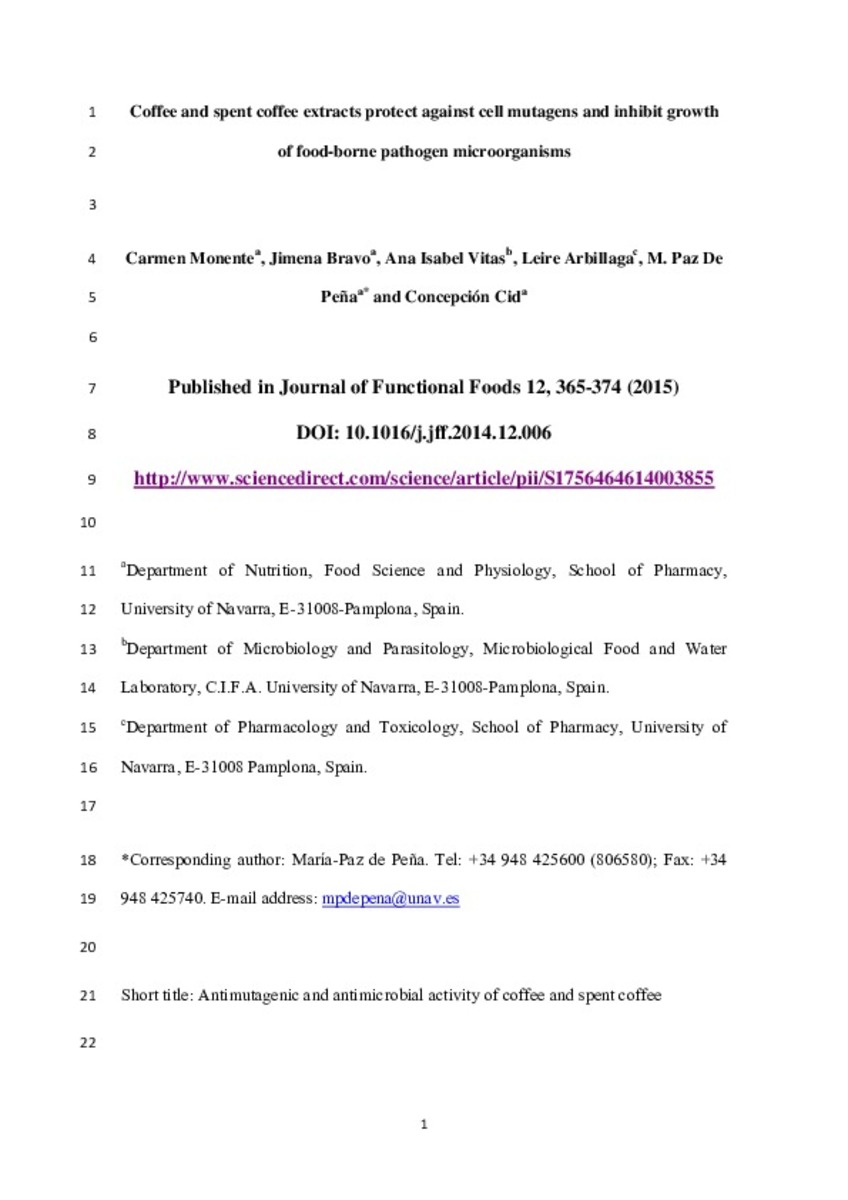Coffee and spent coffee extracts protect against cell mutagens and inhibit growth of food-borne pathogen microorganisms
Other Titles:
Antimutagenic and antimicrobial activity of coffee and spent coffee
Keywords:
Melanoidins
Phenolics
Antimutagenicity
Antimicrobial
By-products
Coffee
Citation:
Monente C, Bravo J, Vitas A.I, Arbillaga L, Peña MP, Cid C. Coffee and spent coffee extracts protect against cell mutagens and inhibit growth of food-borne pathogen microorganisms. J Funct Foods 2015 Jan;12:365–374
Statistics and impact
0 citas en

Items in Dadun are protected by copyright, with all rights reserved, unless otherwise indicated.







